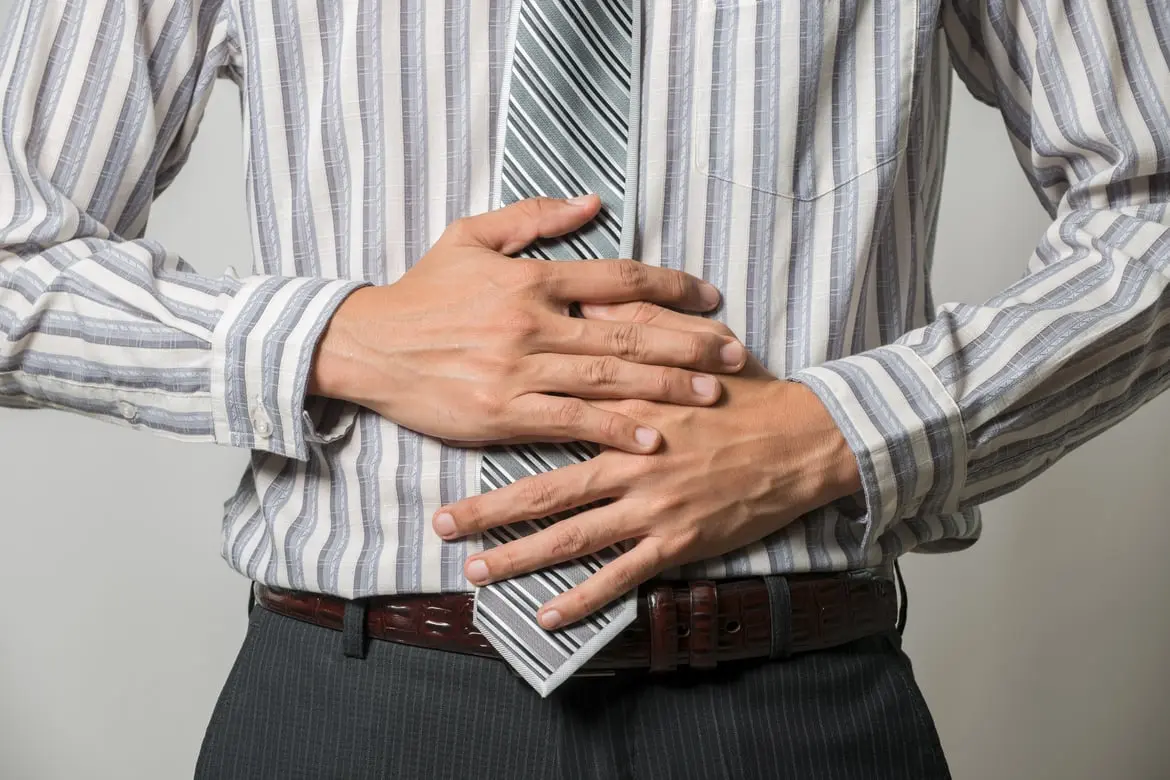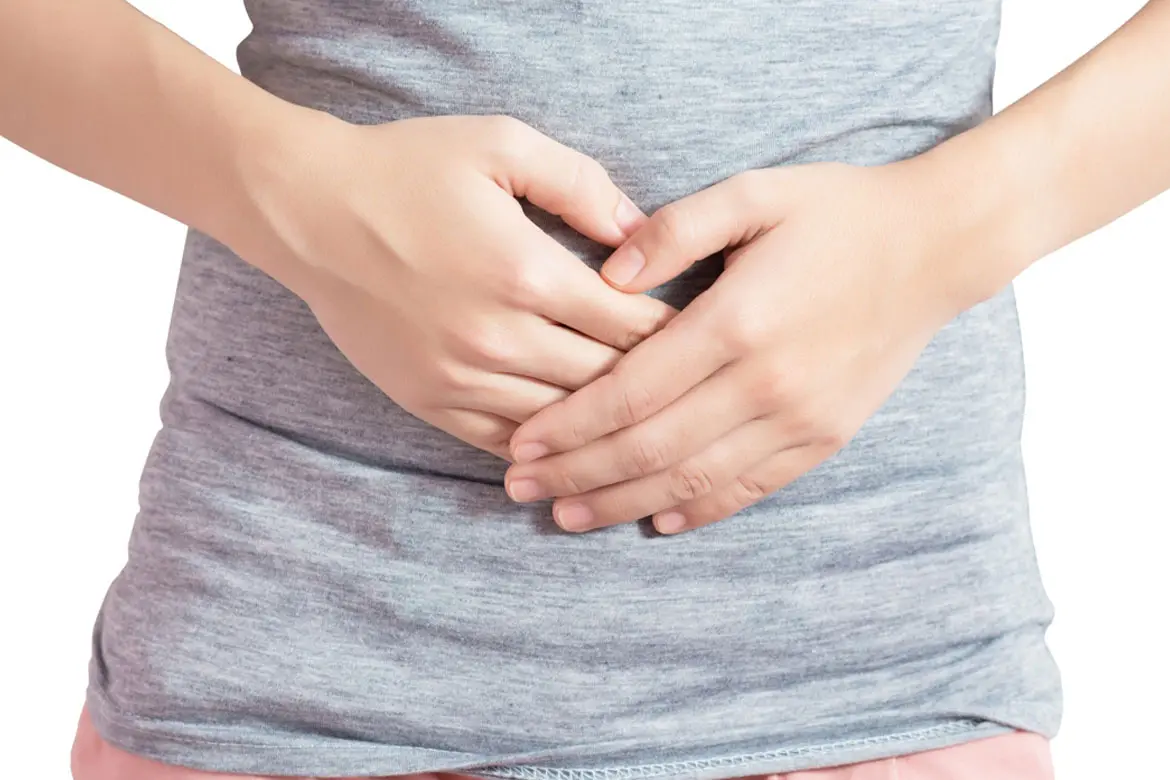-
-
Featured Care Areas


Source: Shutterstock
Stomach Hurting? Causes of Abdominal Pain
Last updated: Tuesday, February 23, 2021 | 4 min reading time
Sometimes, a stomach ache isn't just a call of nature but a sign of something serious. If you experience any unusual or persistent pain in your stomach or abdomen, it may be wise to seek medical advice.
Causes of lower abdominal pain
The lower region of the abdomen is where your colon is located, and for women, your ovaries. Pain in this region may signal different types of health conditions arising from your intestines, urinary system or reproductive organs.
Pain located near the large intestine or colon may indicate:
- Diverticulitis
- Appendicitis
- Irritable bowel syndrome (IBS)
- Inflammatory bowel disease (IBD)
- Hernia
Pain located in the lower abdomen could also indicate bladder issues such as:
- Urinary tract infection (UTI)
- Acute retention of urine
- Bladder stones
- Bladder cancer
In women, lower abdominal pain can be a symptom of:
- Ovarian cyst
- Uterine fibroids
- Endometriosis
- Pelvic inflammatory disease
In men, lower abdominal pain could indicate male-specific conditions such as:
- Testicular torsion
- Prostatitis
If the pain is persistent and increases in intensity, it is a sign you should see a doctor or go to the Urgent Care Centre at a nearby hospital.
Is it your colon?
Your colon is also known as the large intestine. Some conditions that can occur in your colon include:
Diverticulitis
If you experience the following symptoms, it could be diverticulitis, an inflammation of pouches in the wall of your intestines.
- Cramping on the left side of your stomach
- Bloody stools
- Severe abdominal pain
- Fever
Appendicitis
This is an inflammation of the appendix at the end of your intestines. You may experience the following symptoms:
- A dull pain that becomes sharp as it moves from upper to lower abdomen
- Abdominal swelling
- Loss of appetite, nausea and vomiting
- Fever
- Painful urination
Irritable bowel syndrome (IBS)
IBS is a common digestive problem that affects your bowel habits. It displays the following symptoms:
- Diarrhoea or constipation
- Bloating and gas
- Stomach cramps
- Irregular bowel movements
Inflammatory bowel disease (IBD)
IBD refers to conditions affecting different parts of your colon, including Crohn's disease and ulcerative colitis. Their symptoms include:
- Abdominal pain and bloating
- Bloody stools
- Weight loss
- Visible damage to the colon when viewed internally
Hernia
A hernia is the protrusion of your organs through the muscles or fat surrounding them. You may experience symptoms including:
- An obvious lump or swelling
- Pain when moving
- A heavy feeling in your abdomen
- Heartburn
Is it your urinary system?
Your bladder is located in the lower abdomen and stores urine. Some bladder problems can cause pain in your abdomen region. Common causes of bladder pain and their symptoms include:
Urinary tract infection (UTI)
UTI occurs when bacteria enter your urethra and infects your bladder, and can lead to kidney issues. Symptoms include:
- Cloudy or dark urine
- Pain or burning when urinating
- Constant urge to urinate
- Pain in your abdomen
Acute retention of urine
This occurs when you are unable to empty your bladder even if it's full. You may experience the following symptoms:
- Pain in the lower abdomen
- Inability to urinate
- Leaking urine, but not enough for relief
Bladder stones
These are hard masses made up of minerals in your urine. Look out for the symptoms:
- Blood in urine
- Pain or burning sensation when urinating
- Trouble urinating or an uneven flow
- Cloudy or dark urine
Bladder cancer
Bladder cancer occurs when unusual cells develop in the bladder. Symptoms of bladder cancer include:
- Pink, orange or dark red blood in urine
- Pain or burning sensation when urinating
- Constant feeling of needing to urinate
- Inability to urinate
- Swollen feet and aching bones
When women experience lower abdominal pain
Generally, lower abdominal pain refers to pain below the belly button or lower down, which is called pelvic pain. It can arise from any tissues or organ systems in that area. In women, this includes reproductive organs, your ovaries, uterus (womb) or fallopian tubes. It may be a sign of ovarian cysts, uterine fibroids, endometriosis and pelvic inflammatory disease (PID).
Ovarian cyst
Ovarian cyst is a fluid-filled pocket on your ovary. You may experience these symptoms:
- Pain in the abdomen around the cyst
- Bloating or swelling
- Dizziness or weakness
Uterine fibroids
Uterine fibroids are benign lumps that grow in the wall of the uterus. Symptoms include:
- Particularly heavy periods
- Bleeding between periods
- Enlarged abdomen, resulting in pain
- Pain during sexual intercourse
Endometriosis
This condition occurs when the lining of your uterus grows outside the uterus, causing scar tissue and lesions. Signs of endometriosis may include:
- Extremely heavy periods
- Severe pain in your abdomen, or migraines
- Painful bowel movements or diarrhoea
- Nausea
Pelvic inflammatory disease (PID)
PID is an infection of your reproductive organs. Symptoms include:
- Pain in your abdomen
- Abnormally heavy or unpleasant discharge
- Fever and chills
- Pain during sexual intercourse
- Painful urination
When men experience lower abdominal pain
Lower abdominal pain in men could be due to general or male-specific conditions. Pain around the belly button may indicate early appendicitis or stomach ulcers, while pain just above the pubic bone may point to bladder or testicular issues or prostatitis. When pain is felt just on one side, it might be an indication of appendicitis, kidney stones or infection or hernias. These issues are relatively common among men.
Testicular torsion
A condition where the spermatic cord becomes twisted around your testicle, affecting blood supply. You may experience:
- Sudden and severe pain in the testicle
- Enlarged testicle
- Tenderness in the region
- Bruising
Prostatitis
This occurs when there is swelling or inflammation of the prostate, and can be due to a variety of factors. Symptoms to look out for:
- Pain around the base of the penis
- Difficulty urinating
- Abdominal or back pain
- Fever, chills, nausea or aches
- Blood in your semen
What should you do next?
If you are suffering from severe abdominal pain, you should visit the UCC.
If your pain is persistent but manageable, you should still make an appointment to see a doctor to uncover the possible causes of it. Your doctor may order tests and scans to determine your condition. You may be referred to a specialist who can help to diagnose and treat the cause of your pain.
During a medical emergency in Singapore, you can also call +65 6473 2222 for an ambulance that will transport you to the nearest hospital or a hospital of your choice. Learn more about Parkway Emergency services.
Appendicitis (n.d.). Retrieved August 16, 2018, from https://www.webmd.com/digestive-disorders/digestive-diseases-appendicitis#1
A visual guide to inflammatory bowel disease (IBD) (n.d.). Retrieved August 16, 2018 from https://www.webmd.com/ibd-crohns-disease/ss/slideshow-inflammatory-bowel-overview
Ellsworth, P. (2017, November 21) Inability to Urinate. Retrieved August 16, 2018, from https://www.emedicinehealth.com/inability_to_urinate/article_em.htm#when_should_someone_seek_medical_care_for_an_inability_to_urinate
Irritable Bowel Syndrome (n.d.). Retrieved August 16, 2018 from https://www.webmd.com/ibs/guide/digestive-diseases-irritable-bowel-syndrome#2
Testicular Torsion (n.d.) Retrieved August 16, 2018, from https://www.webmd.com/men/testicular-torsion
Lower Abdominal Pain in Men – Causes and Treatments (2020, January 2) Retrieved September 21, 2020, from https://www.netdoctor.co.uk/conditions/digestive-health/a30379953/lower-abdominal-pain-in-men/
Lower Abdominal Pain in Women: 15 Possible Causes and Treatments (2020, August 8) Retrieved September 21, 2020, from https://www.netdoctor.co.uk/conditions/digestive-health/a11617/lower-abdominal-pain-in-women/
A visual guide to inflammatory bowel disease (IBD) (n.d.). Retrieved August 16, 2018 from https://www.webmd.com/ibd-crohns-disease/ss/slideshow-inflammatory-bowel-overview
Ellsworth, P. (2017, November 21) Inability to Urinate. Retrieved August 16, 2018, from https://www.emedicinehealth.com/inability_to_urinate/article_em.htm#when_should_someone_seek_medical_care_for_an_inability_to_urinate
Irritable Bowel Syndrome (n.d.). Retrieved August 16, 2018 from https://www.webmd.com/ibs/guide/digestive-diseases-irritable-bowel-syndrome#2
Testicular Torsion (n.d.) Retrieved August 16, 2018, from https://www.webmd.com/men/testicular-torsion
Lower Abdominal Pain in Men – Causes and Treatments (2020, January 2) Retrieved September 21, 2020, from https://www.netdoctor.co.uk/conditions/digestive-health/a30379953/lower-abdominal-pain-in-men/
Lower Abdominal Pain in Women: 15 Possible Causes and Treatments (2020, August 8) Retrieved September 21, 2020, from https://www.netdoctor.co.uk/conditions/digestive-health/a11617/lower-abdominal-pain-in-women/









